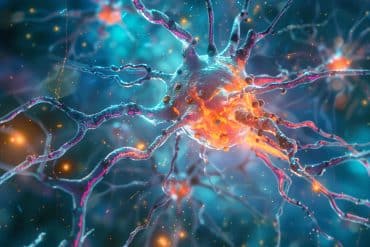Summary: Researchers examined the evolving use of ketamine as a treatment for depression in New Zealand. While acknowledging its potential benefits for treatment-resistant depression, they advise against a rapid large-scale increase in its use.
Studies indicate that while ketamine offers short-term improvement, it may lead to high relapse rates and potential misuse. The key is careful patient selection, close monitoring, and robust support structures.
Key Facts:
- Ketamine shows significant short-term improvements for depression but has high relapse rates post-treatment.
- There’s a potential risk of misuse, with concerns about abuse potential, bladder issues, and memory side effects.
- Recommendations advocate for controlled use, prioritizing treatment-resistant depression and under the guidance of familiar clinicians.
Source: University of Otago
Ketamine can be used to manage treatment-resistant depression but researchers warn it should be done so sparingly.
In an editorial in this week’s New Zealand Medical Journal, Dr. Ben Beaglehole, Associate Professor James Foulds and Professor Roger Mulder, all of the University of Otago, Christchurch, examine the use of ketamine to treat mental illness in New Zealand and how this is evolving.
They believe greater access to ketamine to manage treatment-resistant depression is beneficial, but do not support a “large-scale rapid increase” in ketamine use.
In New Zealand, ketamine is mainly used in research settings although there is limited use by publicly funded specialty services. Recently, treatment has been offered by private providers.
Studies have shown ketamine is associated with large short-term improvements in depression symptoms, but can lead to high rates of relapse when treatment ends.
Managing these relapses will be a challenge for clinicians, Dr. Beaglehole says.
“Additionally, there are concerns about the abuse potential of ketamine and other adverse factors including bladder issues and possible memory side effects.”
While most ketamine used recreationally is produced offshore, lessons learned from other medications indicate there may be some misuse and diversion of prescribed ketamine for illicit use.
“Patients who undergo this treatment will need to be carefully selected and closely monitored for adverse outcomes.
“The potential offered by ketamine is exciting but history suggests tempering our enthusiasm given lessons learned from other exciting treatments in our past.”
The Royal Australian and New Zealand College of Psychiatrists recommends restricting use to treatment-resistant depression (outside of research settings) and ensuring its use only occurs in services where clinicians are familiar with the drug and support structures are in place.
Dr. Beaglehole says specialty services best initiate ketamine for the primary indication of treatment-resistant depression, although careful attention to equity of access is required.
About this psychopharmacology and depression research news
Author: Ben Beaglehole
Source: University of Otago
Contact: Ben Beaglehole – University of Otago
Image: The image is credited to Neuroscience News
Original Research: Open access.
“The rise (and possible fall) of ketamine treatment in New Zealand” by Ben Beaglehole et al. New Zealand Medical Journal
Abstract
The rise (and possible fall) of ketamine treatment in New Zealand
In this editorial we outline the current status of ketamine in the treatment of mental illness in New Zealand and how we see it is evolving.








